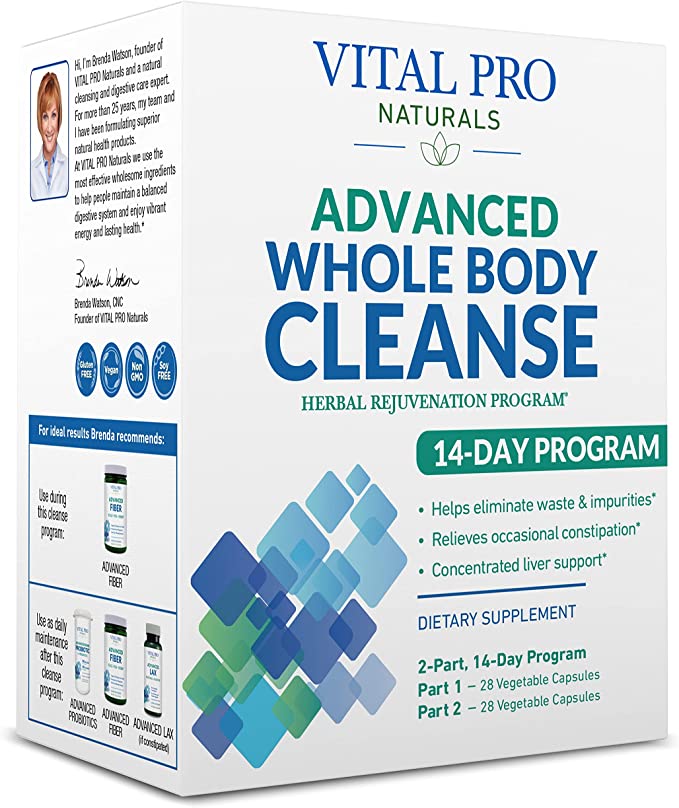Over Half of Foods Tested Contain Pesticides Including Glyphosate
From Pests to People
150,000 tons of glyphosate are sprayed on American crops every year — the equivalent of one pound of glyphosate per year for every person in the U.S.
Every meal, every day, you and your family are unknowingly consuming pesticides. They are everywhere, and it’s virtually impossible to avoid them. They’re in the air, soil, groundwater, surface waters — even rainwater!
They are stealthy and cunning, contaminating the food supply on a daily basis. And since pesticides are lethal poisons designed to kill living things like pests and plants, they are slowly killing us too.
The worst offender is glyphosate — the most widely used pesticide in the U.S. and the active ingredient in the popular weed killer Roundup.
Are you someone who washes all of your produce before throwing it in the fridge? We have some unfortunate news for you:
Glyphosate cannot be removed through washing or cooking food.
Independent, FDA-registered labs have found exceptionally high levels of glyphosate in familiar foods, such as oat-based cereals and granola bars, almonds, beets, canola and corn oil, and soy products.
Recently, the Centers for Disease Control and Prevention (CDC) found that more than 80 percent of Americans have glyphosate in their urine. Previous research has shown even higher numbers.
It’s important to understand how far-reaching the effects of pesticides are!
Today, we want to share some critical and shocking health information with you regarding glyphosate and other pesticides:
- How toxic pesticides damage your health in multiple ways.
- Foods with the highest glyphosate and pesticide levels — and how buying organic versions reduces your exposure.
- A first-of-its-kind supplement that provides advanced pesticide detox benefits and defense against a variety of toxins.
But first, let’s talk a little more about glyphosate and other pesticides …

You may be wondering, is glyphosate really that bad for me?
Glyphosate and other chemicals can cause lasting harm to your body, including vital organ damage. According to Environmental Health News, research links glyphosate to cancer, reproductive issues, neurological diseases, endocrine disruption, and other health problems.
The World Health Organization’s International Agency for Research on Cancer describes it as “probably carcinogenic” to people.
Glyphosate is also a chelating agent. This means it can bind with nutrients in our soil and negatively impact the nutritional value of food. It does this by inhibiting plants’ absorption of nutrients.
You Might be Thinking… I Can Avoid Pesticides as Long as I’m Not Near a Farm, Right?
Unfortunately, no. Everyone is exposed to pesticides — no matter where you live. Virtually every major conventional food crop grown in the U.S. gets doused with glyphosate, usually in combination with other pesticides.
Did you know that weed killers containing glyphosate are routinely sprayed on golf courses, playgrounds, and school lawns? Your neighbors may be using it on their lawn or gardens as you read this. If you live in a flat part of the U.S., glyphosate can travel through the air for miles across the plains.
Glyphosate is the most widely used pesticide in the world. That’s true even after more than 20 countries banned its use. But dozens of countries — especially the U.S. — continue to spray this poison on everything from spinach to soybeans. And glyphosate use has been increasing year over year.
Another big problem — chemical companies generally combine pesticides for more complete coverage against weeds and pests. Unfortunately, these combinations make glyphosate more toxic. Glyphosate is often paired with other toxins such as Atrazine, Dicamba, and 2,4-D.
Organic and Non-GMO
DO NOT Mean Pesticide-Free
Introduced in 1994, genetically modified organisms (GMOs) were engineered to withstand glyphosate. So, it’s logical to think that non-GMO products are glyphosate-free. Not necessarily. Testing has found glyphosate residue in many non-GMO products.
A possible reason for this is that farmers apply glyphosate as a pre-harvest desiccant to “dry out” their crops faster. This helps accelerate the harvesting process and makes it easier to deal with unpredictable weather.
But this only adds to the problem of glyphosate overuse. And it creates more opportunity for glyphosate to drift, spreading through the air to other crops — including non-GMO and even organic ones.
Lentils, beans, potatoes, oats, wheat, peas, sugar beats, corn, and millet are the most common crops where glyphosate is used as a desiccant.
Love hummus? The Environmental Working Group found glyphosate in more than 90 percent (!) of non-organic hummus and chickpea samples.
Certified organic foods contain substantially fewer chemicals and are guaranteed to be non-GMO. Pesticides, including glyphosate, are prohibited from use in organic farming — and the standards are pretty strict.
But … the soil and groundwater from organic farms may hold pesticide runoff from other farms. And, as mentioned above, glyphosate can get caught in the breeze and drift to other farms.
Foods and crops highest in glyphosate (with soy being the highest): soy; corn; cotton; wheat; oranges; sorghum; almonds; grapes; sugar beets; sunflowers; rice; walnuts; canola oil; and pistachios.
What Glyphosate Does to Our Bodies:
A growing number of scientists believe that exposure to even minuscule levels of pesticides — especially in combination — is toxic.
While research on the long-term health effects of pesticides is limited (and in some ways, flawed), there are studies that have directly linked pesticides to specific health issues. Here’s a closer look:
Obesity
Pesticides like glyphosate — known as endocrine-disrupting chemicals — mess with the way your hormones work. They tell your body to store fat and hold on to it. That’s why scientists have started calling certain chemicals “obesogens.” Pesticides can make it hard to avoid weight gain and more difficult to lose weight.
Chronic Gut Issues
Glyphosate is a patented antibiotic. So along with killing weeds, it also kills bacteria — the bad and the good kind. It destroys beneficial probiotic bacteria in your gut, and that can cause severe intestinal distress. Pesticides like glyphosate can cause chronic diarrhea, gas, and bloating, irritable bowel syndrome (IBS), and other gut-related problems that compromise your quality of life.
Poor Brain Function
Glyphosate and other pesticides affect brain function by increasing levels of certain brain chemicals like glutamate. These over excite your brain cells, making it harder for them to communicate and function properly. That’s why rates of ADHD and similar disorders are so high — especially among people who eat more conventionally grown foods. New research even links glyphosate to seizure-like behavior.
Cancer
Pesticides interfere with many biochemical processes, especially endocrine-disrupting chemicals. They also increase the free radicals that cause oxidative stress. Both of those problems can cause cancer or speed up its progression. Pesticides have been linked with several kinds of cancer, including non-Hodgkin’s lymphoma, leukemia, and kidney cancer.
Fertility Problems
Glyphosate and other pesticides that disrupt hormones can cause infertility in women and men. They’ve also been linked with a higher risk of miscarriage and premature birth. Now researchers discovered that pesticides may cause “generational toxicology,” putting your future children and grandchildren at higher risk for some diseases.
Unfortunately, so many people today wake in the morning to brain fog, chronic pain, anxiety, fatigue, depression, and other symptoms — even in the absence of diagnosed illness. We may be living longer than generations past, but our collective health continues to decline under the weight of chronic, degenerative conditions.
We tend to accept this decline as part of the normal aging process — but it doesn’t have to be.
Over the years, I have come to see that pesticides are one of the biggest health threats we face as a society. Rampant use of glyphosate and other chemicals has given way to a true health emergency. Our whole-body detox can undo the damage caused.
Click the link below to purchase.
https://www.truehealthandvigor.com/product/vital-pro-whole-body-cleanse/
Article by: Dr. Isaac Eliaz

